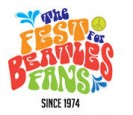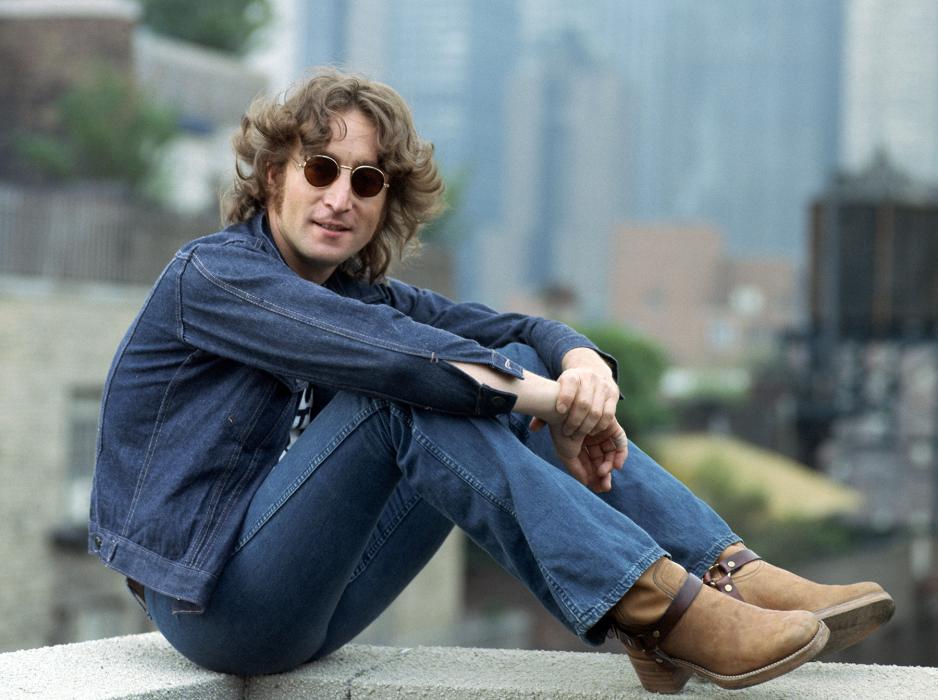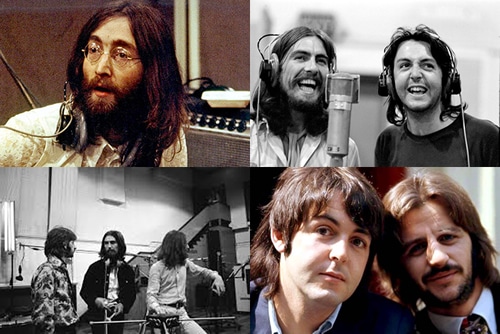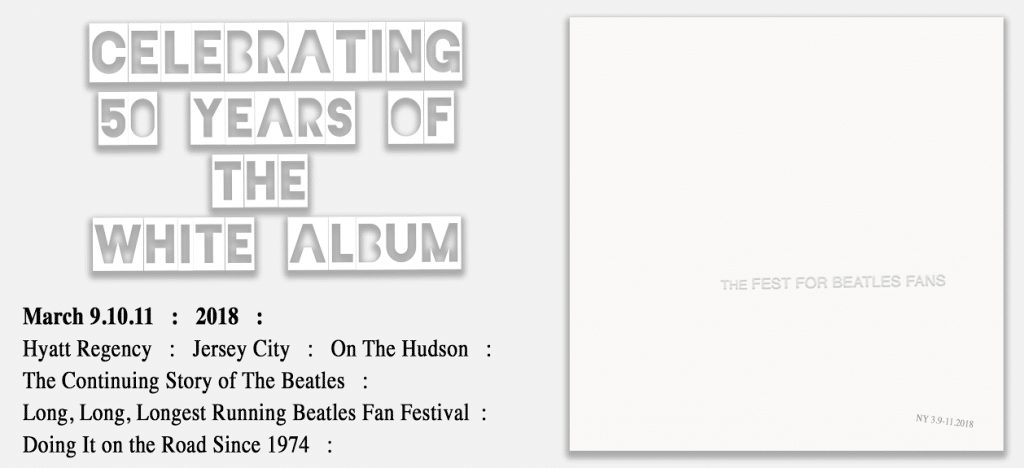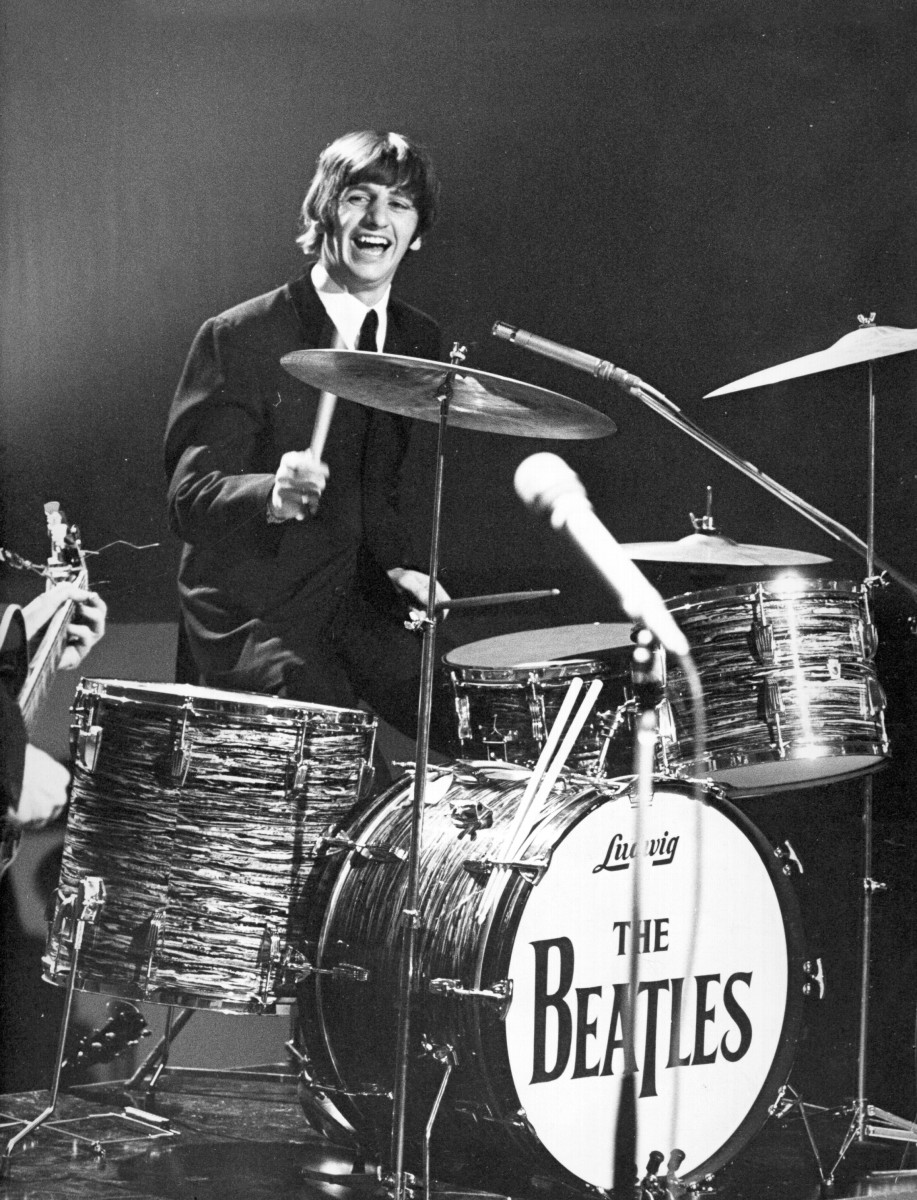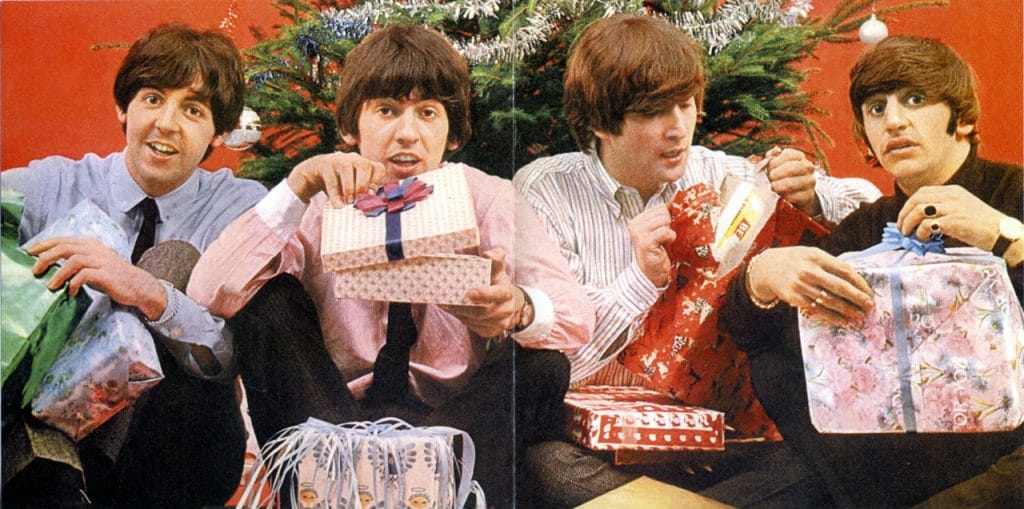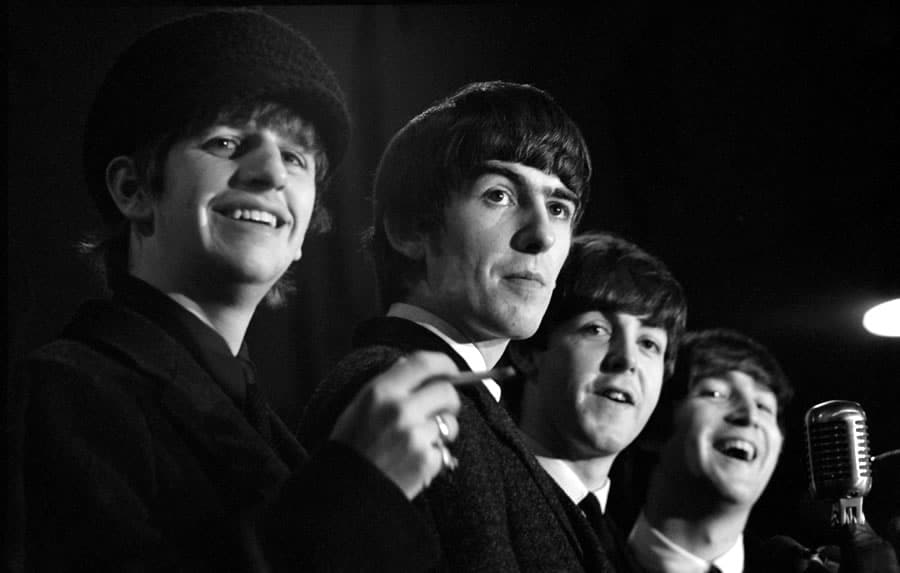By Jude Southerland Kessler and members of our Fest family
Sir Ringo Starr. Sir Richard Starkey. Either way, it has a lovely (Dare I say it?) ring to it! And there’s an appendage that seems to be attached to the title, whenever a Beatles fan utters it. It goes like this, “Sir Richard Starkey, About Damn Time.” Right?
For ages, those of us in the Beatles world have held our Ring in the highest esteem and have always known him to be rock’n’roll royalty. And our reasons for placing him in the category of “The Elite” are as many and varied as there are fans. Let’s hear from a few special people in our Fest for Beatles Fans family and discover what they remember most and best about Sir Ringo:
From David Bedford of The Dingle (where Ringo grew up) area of Liverpool and author of the upcoming book Finding The Fourth Beatle:
Ringo was the first Beatle I knew about as I grew up in the Dingle near Madryn Street where he was born, and I attended the same primary school, St. Silas that he had. The Dingle was a tough place to live back in the 40s and 50s.
He had such a hard childhood, with his father leaving home when Richy was only 3. He then nearly died from illness at the age of 7, missed a lot of school, contracted tuberculosis at 13 and was so ill. And yet, he emerged from this backdrop of adversity to become one of the most respected drummers of all time, and not just because he was a Beatle!
Having studied his drumming for my new book Finding the Fourth Beatle, I can now truly appreciate what he contributed to The Beatles and their sound.
Don’t let anyone tell you he was lucky. He wasn’t! Finally he is getting the recognition he deserves. Arise, Sir Richy of Dingle.
From our fearless leader, Mr. Mark Lapidos, founder of The Fest for Beatles Fans:
What’s my favorite Sir Ringo Moment? Well, ‘I’m a Mocker’ does it for me! Also, on Ringo’s 70th birthday when Paul surprised him. Ringo ran and then sort of leaped onto his kit to join his ‘brother’ for “Birthday.” A most magical moment!”
From Nicole Michael of 910 Public Relations (a lifelong Ringo fan):
Sir Ringo is not afraid to be authentic. In several well-known interviews, he cries. I love a sentimentalist, and can totally relate to his just letting the emotions flow. He’s not dictated by a PR machine, he is himself. This is not more obvious than in his Twitter feed (by the way, everyone should read this article on the 19 reasons you should be following Ringo on Twitter!). A lot of people say Ringo was just lucky, but I say not only is he very talented, he is also honest and grateful.”
From author, Lanea Stagg, of The Recipe Records Series, including Recipe Records: A Tribute to The Beatles:
My mother should know. She always told me that Ringo was the Beatle that ALL the girls loved when the boys invaded America! Ringo’s one liners, or Ringo-isms, endeared him to his brothers John, Paul and George. They presented his charming phrases to the world: “tomorrow never knows,” “eight days a week” and “a hard day’s night!” The many interviews I’ve seen with Ring have only cemented the fact that he was genuine and loving and wished for love and peace. It is impossible not to love that “bundle of joy!”
From Danny Abriano, who keeps our Fest for Beatles Fans social media and website running smoothly, and helps plan each Fest — including booking the Apple Jam Stage:
My favorite Ringo moment was being at his 70th birthday at Radio City when Paul showed up and the two of them played “Birthday” together! After Ringo’s set was over, I noticed a stagehand run out and place Paul’s iconic bass in the middle of the stage. I turned to the person I was with and let them know what was about to happen, even though I couldn’t quite believe it. Within seconds, Paul ran out, the place went ballistic (it was literally shaking), Ringo came back out and ran to his kit, and the song started, with Paul belting it out as if it was 1968. It was an unreal experience. For someone my age (I was born in 1983), seeing two Beatles playing together live was something I didn’t think I’d ever witness.
From Marti Edwards, author of 16 in 64: The Beatles and The Baby Boomers:
My most precious memory of Ringo was during their 1964 Press Conference in Chicago. I was 16 years old then and our Beatles Fan Club was in attendance to present a plaque to the Beatles. When they entered the room, the press ran to take photos and ask questions. By the time we reached that side of the room, the Beatles were already talking to reporters. Peering over heads, I caught a glimpse of George, John and Paul, but didn’t see Ringo. I asked my friend where the heck was Ringo. The fellow standing directly in front of me turned and said, “Here I am darling” and gave me a hug. I almost fainted…It was Ringo! Thank you for the wonderful Ringo moment. Big hugs to you, Ringo, fifty-four years later.
From Al Sussman, author of Changin’ Times: 101 Days That Shaped a Generation and lifelong Fest Family member:
Ringo was the final piece of the puzzle, transforming The Beatles from a popular Merseyside band to the group that changed the course of music history. If you need proof, watch Ringo playing like a man possessed for The Beatles’ first American concert and saying afterward, “I could have played for this crowd for hours!”
From Sara Schmidt, author of Happiness is Seeing The Beatles: Beatlemania in St. Louis:
As a Second Generation Beatles fan, I grew up with a Ringo loving mom. My mom, Coral, has loved Ringo Starr from the moment she first saw him on the Ed Sullivan Show in 1964. Throughout my life, I have always heard the praises of Ringo. (How he is the best drummer, sings the songs so much better than the cover versions of them, he is the funniest, the nicest, and the cutest.) And while I am a John girl myself, I have always had a soft spot for Ringo because my mom has always loved him. My favorite Ringo memory was when my mom and I saw Ringo in concert in 2014. We had great seats, 4th row center. At the last Fest that we had attended, my mom had bought a T-shirt from Mark Hudson that said, “Ringo Rocks!” In the middle of singing “Yellow Submarine,” Ringo noticed my mom’s shirt and made a motion across his chest to signal that he had read the shirt and then gave a “thumbs up.” My mom was thrilled beyond belief! Ringo actually noticed her 50 years after she first noticed him! I think it is great how Ringo goes out of his way at his concerts to wave or give a peace sign to as many fans in the audience that he can. As my mom’s shirt said – Ringo Rocks!
From Jim Berkenstadt, the Rock’n’Roll Detective and author of The Beatle Who Vanished, the story of Jimmie Nicol:
For me, meeting Ringo was a big moment. I was invited to the Vegas premier of The Beatles “Love” show by Neil Aspinall. (I had worked on the show project.)
At The Beatles After Party, I was chatting with Jim Keltner and John Densmore (drummer for The Doors). Ringo came up to say hello (to the drummers, not me. LOL) He said something like, “Oh, I didn’t know we were having a drummers’ convention.” I said to Jim Keltner, “I must have died and gone to drummer’s heaven!” Keltner is a fan too, so he understands. It was just a nice, relaxed chat. I just got to hang, say hello, and mostly listen to these amazing musicians. Needless to say we all talked about how much we loved the show.
From Tom Frangione, co-host of the Fab Fourum on Sirius XM Radio and lifelong Fest Family member:
Generally, my favorite thing about Ringo is the nearly 30-year running All Starr Band franchise. Got to see so many musicians I might not have ever gotten out to catch in concert. Seeing Ringo play so many styles of music and jam with the likes of Joe Walsh, Dave Edmunds, Felix Cavaliere, Billy Preston, Peter Frampton, and so many more has made for so many great memories!
BEST MOMENT – 7/7/2010 – All Starr’s do a concert on Ringo’s 70th birthday and Paul shows up to play – what else – “Birthday”! Place went crazy – TOTAL BEATLEMANIA!!!!
From Dr. Kit O’Toole, author of Songs We Were Singing: Guided Tours Through The Beatles Lesser Known Tracks:
Ringo’s showmanship as a solo artist has grown more and more electric. I remember the Grammy Awards Salute to the Beatles TV special—when he bounded onstage to perform his solo spot, he OWNED that room. Wearing a radiant smile, Ringo ran up and down the stage, leading the ecstatic audience in singalongs and infusing the room with joy. Seeing an over 75-year old enthrall an audience of all ages? THAT’S an inspiration.
From Ken Womack, author of Maximum Volume: The Life of Beatles Producer Sir George Martin, Vol. 1:
My favorite memory involves George Martin, who always felt bad about the way Ringo was welcomed into EMI Studios in the wake of Pete Best’s ouster and the manifestation of studio drummer Andy White. Years later, George would note that Ringo never complained in the studio, working for hours on end behind his kit as the others worked out their ideas, only making a small handful of errors in all of that time. It’s an astounding record, really, and a great tribute to Ringo’s sense of his craft.
From Susan Derbacher, lifelong Fest Family member and illustrator for Vol. 4 in The John Lennon Series, Should Have Known Better:
One of my favorite Ringo quotes/comments is taken from an interview years ago: “First and foremost I am a drummer. After that I am other things.” In his self-effacing way, Ringo reveals what he hopes will be his legacy unaware at the time perhaps of the huge impact and imprint he and his band mates had left on the world. Everlasting indeed! A perfect example of this was witnessed the first time I saw Ringo live with his first All-Starr Band in 1989. Elated to see a Beatle in concert for the very first time (my 2nd being Paul in July 1990), I was struck at how he was simply just a part of the band. (Front and center when needed, but happy to be nicely tucked behind his kit as he transferred the spotlight to the other band members as they sang and soloed through their hits.) I have seen several incarnations of the All-Starrs through the years, and it is always an evening to sit back and enjoy an evening of Peace, Love, great music, and incredible moments. Sir Richard Starkey: a great drummer and humanitarian…and always unforgettable!
From Jacob Michael, Chicago Fest family member and editor for The John Lennon Series:
My favorite Ringo memory is probably seeing him on-screen for the first time in A Hard Day’s Night. I was only 11 years old and already a fan of Monty Python’s Flying Circus and that style of British humor, so I fell in love with The Beatles’ display of wit and their constant one-liners in that film. And I remember thinking that Ringo in particular had such a wonderfully dry and droll sense of humor. To this day I find myself randomly quoting his lines from that film: “She’ll only reject me in the end, and I’ll be frus-trated”; “hiding behind a smokescreen of bourgeois cliches!”; “well if he’s your grandfather, who knows, hahahahah!”
From Jerry Hammack, author of The Beatles Recording Reference Manual:
It’s 1967 in the pine paneled, shag carpeted rec room of my grandmother’s house in the south end of Seattle. She had let me stay up late because the midnight matinee on channel 4 was A Hard Day’s Night and she knows how much I love The Beatles. So, I’m camped a couple inches from that glorious 20″ black and white cathode ray tube, and there’s Ringo, making me laugh while he rocks my cowpoke pj’s off – with his hideous great hooter, and his poor little head, trembling under the weight of it! To this day, he still rocks me and he makes me laugh.
Finally, from Suzie Duchateau, Chicago Fest family member:
I think socially/emotionally, Ringo made out the best of the four. Being an only child and spending many years “in hospital” as a youngster, I think he found a band of brothers in the other three – an instant family. As he missed much schooling in his formative years because of his health, he was not extremely “book smart,” and I think he could come off as a bit unfriendly to outsiders and let the others do the talking a lot. With the Beatles, however, he knew he was never judged and wasn’t made to feel that he didn’t measure up. He could just be himself and not think before he spoke. He was with family.
Ringo, you are still with family, but these days, the family is quite large: worldwide. From Michael Quinn in Italy to Gabor Peterdi in Hungary to Adam Forrest in California, we love you and are so very proud. We read Dave Bedford’s words and tear up because we, too, feel a part of who you are and what you’ve done. And over the past fifty or so years, we’ve all been immensely honored to take the journey with you. Peace and Love – may they be yours, Sir Ringo.
Jude Southerland Kessler is the author of the John Lennon Series: www.johnlennonseries.com
Jude is represented by 910 Public Relations — @910PubRel on Twitter and 910 Public Relations on Facebook.




